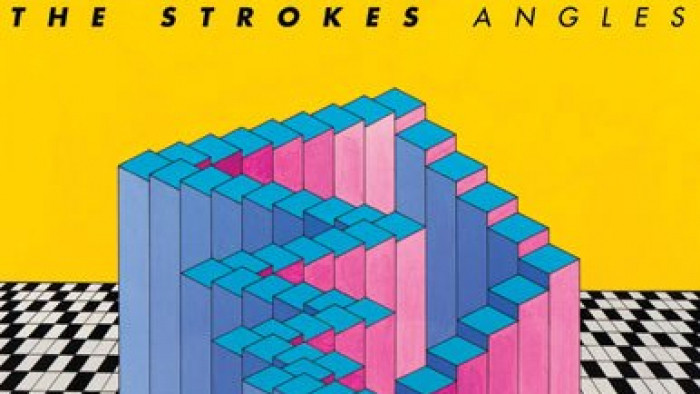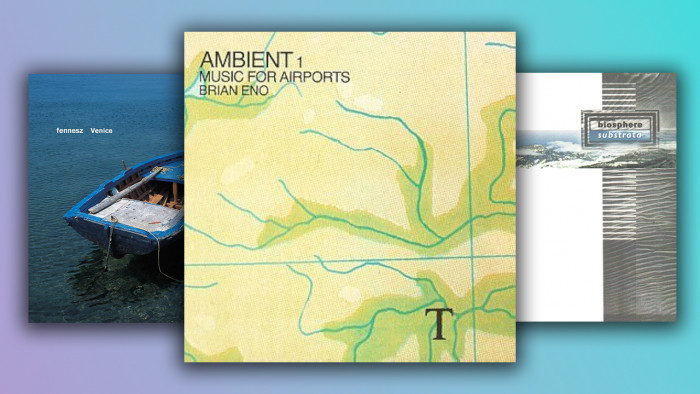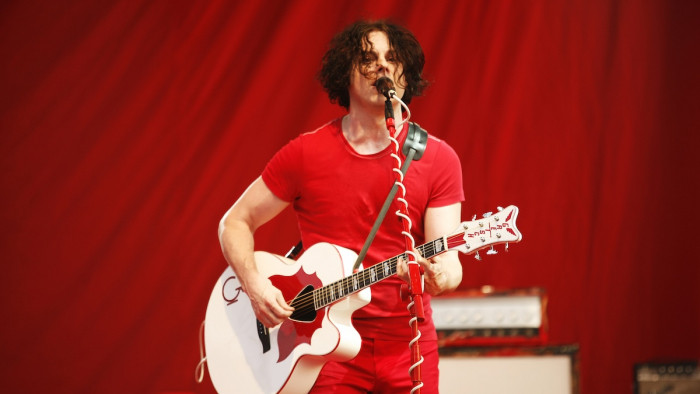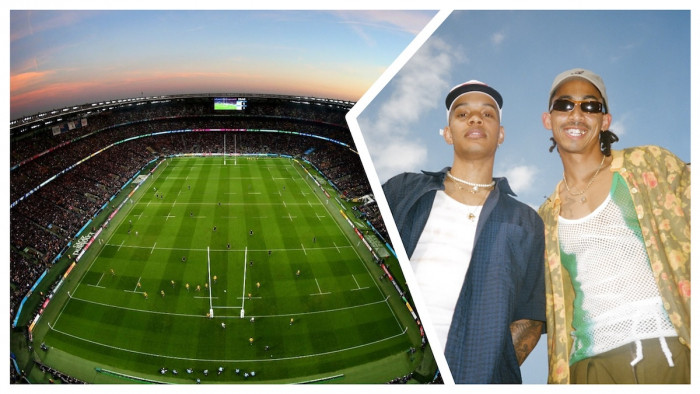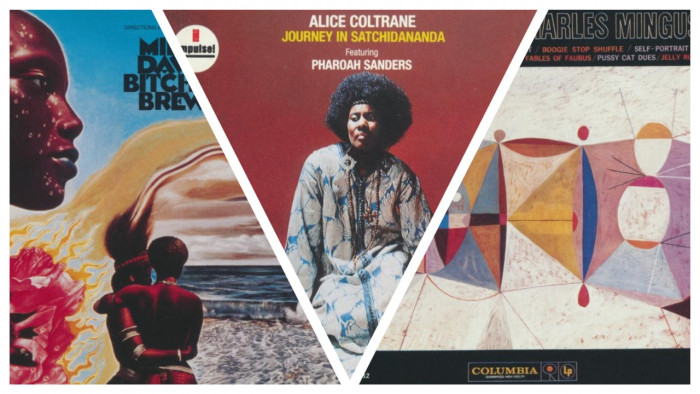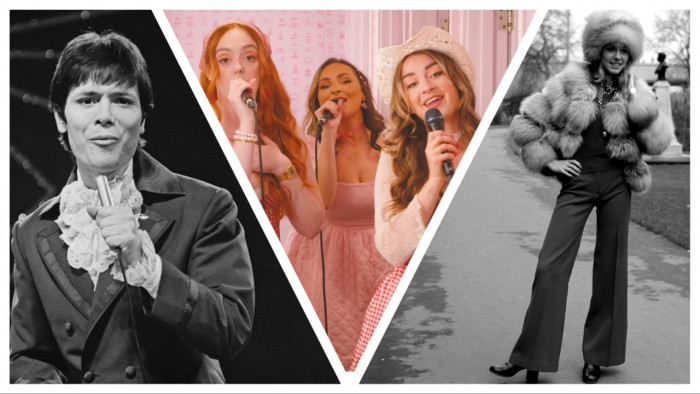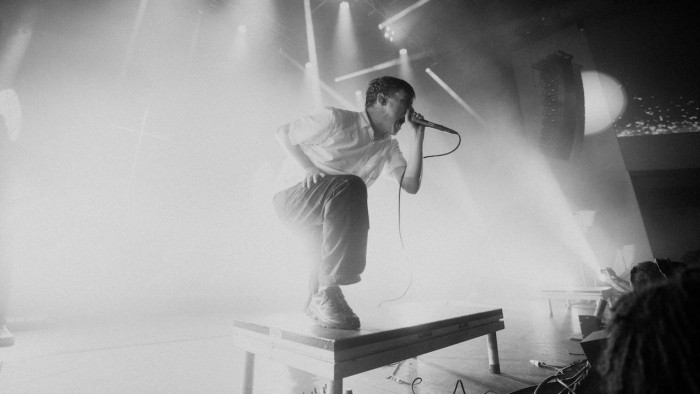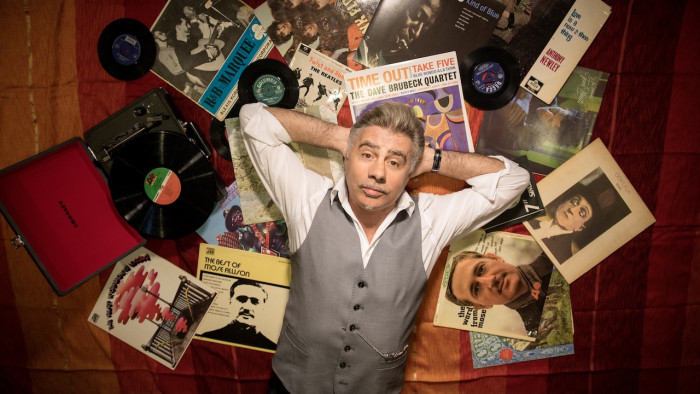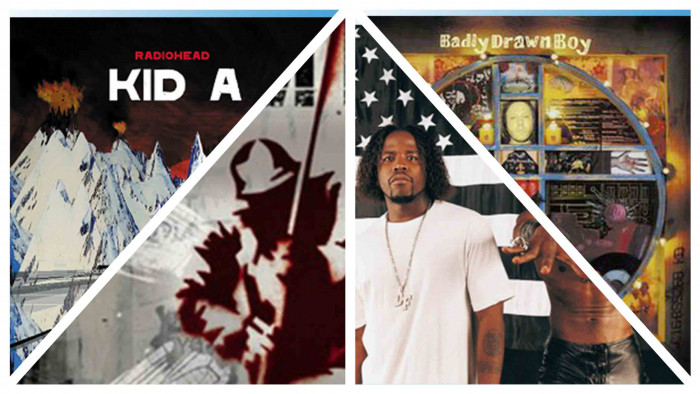Thursday 17 February 2011. New York City. ShortList is at Milk Studios, Manhattan, for a photo shoot with The Strokes to mark their return after five years away. Everything’s set up for the two-hour session, including a generously stocked buffet table. But there’s a problem: no band. The call comes in. Frontman Julian Casablancas is bed-ridden with flu and won’t be able to do the shoot. Friday or Saturday might be a possibility, depending on how he feels. Everyone in the room visibly sags. Then begins to comfort eat.
The shoot eventually takes place on the Saturday morning. They arrived early, happily relaxed on the sofas, chatting as they wait. Lead guitarist Nick Valensi even shows up with his kids in tow, so while the band are busy being photographed, the talk away from the camera’s flash turns to colourful trainers and Daphne from Scooby Doo. All this a mere two hours before our photographer is due to fly out to Los Angeles on another assignment. Close doesn’t cover it.
In fact, the brinkmanship reported here doesn’t in anyway touch on the anxiety ShortList had endured while thinking we’d flown all the way to New York to return with nothing more than a bag of airport-bought Reese’s Pieces. We spent two full days pounding the city’s sidewalks trying to admire the Upper West Side’s brownstones, while desperately hoping the phone would ring, bringing the news that Julian had emerged from his feverish state. But in retrospect, given we’ve been waiting since 2006 for The Strokes to properly re-emerge, two extra days isn’t too much of a trial. And now we mention it, what has kept them so long?
The rumours are that you all fell out. How bad did it get?
Albert Hammond Jr (rhythm guitarist): On the first record things took off at an incredible speed, which was amazing – we don’t regret that initial spark of success because it got us where we are now. But we didn’t know how to slow it down.
Fabrizio Moretti (drummer): Like any other family, there’s happiness and there’s strife. But that’s just being human. It’s one thing to punch in the clock and have to deal with people you work with. It’s another to have to deal with those people and be creative with them.
Nikolai Fraiture (bassist): It never came to blows. Just shouting matches.
AH: We hit a wall as a band and we stopped communicating. I just hid under a sea of drugs and resentments and angers and had to figure them out for me as a human being.
The idea is that it was Julian who was holding things up…
NF: [Laughs] Yeah, that a*shole. No, I wouldn’t put it all on him.
Julian Casablancas: I wouldn’t say it was my doing. I would say I tried to be the voice of reason. I think there are some people in the band who, even if they were in the hospital, would want to do a record. But people weren’t all there.
AH: I don’t even know the truth. But I don’t think Julian was holding up a record. We’ve still made it. Maybe it took longer, but sometimes that happens.
Still, did any of you get frustrated over the long wait?
Nick Valensi: Yeah, there were definitely points of frustration for me. Other members of the band said they weren’t into working just yet, and I couldn’t really relate to that.
NF: There was a lot of stopping and starting. In 2007, Fab, Nick and I went into the studio a few times to try to get the ball rolling again. But after the third time when Albert wasn’t there, or someone else wasn’t there, it was clear a longer break was necessary.
AH: [Laughs] I had no idea.
Was there a time when you thought The Strokes were over?
NF: Yeah, because time was getting on and we’re getting older.
NV: It did seem like a possibility. I definitely had that thought cross my mind and it was unsettling to say the least. But I confronted that thought. I was very open about it. I spoke to everyone and they were very reassuring.
JC: I never thought of it in those terms. I would never do anything to break up the band.
Does it feel like there’s now extra pressure on you because you’ve been away so long?
AH: I don’t think pressure ever goes away. It’s part of life. It’s part of being in the system of entertaining. It adds to how you create. But I don’t think you can relax on anything you’re going to put out for people to listen to.
FM: It’s hard to have perspective right now. It’s been a long time in the making. Some of these songs are really old. The results will show themselves in the way that people react to the record. And so far, so good.
NV: I’m excited. I had been waiting for the rest of the band to be ready to get back together. So when everyone was into it again I was very excited. I still am, man.
Did you still hang out and remain friends during the time away?
NV: Fab and I probably hang out the most. We are really, really, really close friends. We’ve hung out almost every day during that five-year period.
AH: We’d all see each other every couple of months. We started slowly doing the communication which led to us needing to be away from each other to let it all sink in. You can’t force that. We had to build a new foundation – The Strokes 2.0.
So when you all met up together, was that in the office or at something social, like a ball game?
AH: At a ball game? [Laughs] It would be funny if we all met up at a ball game. If I made a movie about us, we would definitely have all met up at a ball game because visually, that’s amazing.
One of you catches a fly ball and you all decide to get back together?
AH: Yeah! Well, no. Because we were never apart. We just needed space.
But you did see each other?
NF: Julian and I used to play sports together as kids, and in 2008 we played in a soccer league for a while. Not field soccer – four-on-four [five-a-side] stuff.
JC: We were in division three, which was the worst, but we were champions. We got a trophy. It’s in Livonia – the restaurant. The bar’s run by our goalie. He was awesome.
NF: It’s a bunch of people who aren’t that good, but they have passion. They’re violent. I bruised a rib and was out for three weeks.
Are you good players?
JC: I would say no. I only started playing soccer recently. I probably fall into the category that most Americans do, which is ‘good at defence’.
Do you have geeky interests that people wouldn’t expect?
FM: Of course. Look at me. I’m a dork. I feel that way every day and that’s being honest. I never feel like I’m cool. I try to ignore the mirror as often as possible. Some of us like mirrors, some of us don’t. They give me the heebie jeebies. I’m vexed with… I shouldn’t say that. I was told never to make an interview a therapy session.
AH: I think that’s what makes us really cool, that we’re actually fat dorks. Being cool is really just doing things that you want to do. I feel that if you had to live the way people see you – as being cool – then you’d be so two-dimensional, you’d be a photo. We’re trying to get together this Sunday-night thing. Our friend Matt Romano who played drums for us when Fab broke his hand has started cooking. So we’re trying to do this thing where we go to someone’s house and he makes a meal for a bunch of us so he can practise and we can eat good food. After the first time we thought, “F*cking A. We should do this once a week.”
JC: I’m going through a Milli Vanilli phase right now. I mean, I don’t go deep into their catalogue, but I watch the videos in awe and the concepts blows my mind.
AH: I like building puzzles, like 2,000-piece puzzles. I do them and then I glue them and frame them and hang them up in the studio. I know that Fab was building Star Wars LEGO with Devendra Banhart [the singer/songwriter]. And like any guy does, we all invent weird games. If we’re at an event waiting for something and there’s like a trash can and a plastic bottle, we’ll be like, “Five bucks to whoever makes it first.” But none of these things sound dorky to me. They sound exciting.
Does being in The Strokes in 2011 differ to being in The Strokes five years ago, or are you still living a life of rock star excess?
NF: Yeah. Rock star excess. I’m going to go straight to the bar after this actually. I’m starting to get a little bit antsy. [Laughs]
NV: Well, I’m married [to British photographer and very first ‘It Girl’ Amanda de Cadenet]. I have kids. I’m not traipsing round town like a bachelor any more. But I’m very content. I had a great time when I was going crazy and it’s fun to let loose once in a while, but it’s more controlled now. Having a family comes with added responsibilities. I can’t stay up until eight in the morning any more because I’ve got to take my kids to school. I spend a great deal of time with my kids doing really paternal things – going to the park, cooking breakfast, going to birthday parties. I do a lot of that sh*t.
AH: We’re not 18 any more, man. Things change, as they should. And thank God. If we were 28 and still acting like we were 18? That’s not who I want to be. People have this image [in their heads] and they see this dream and they want to live it, but the sad part is it’s impossible. I feel like I’m getting somewhere a little clearer. And I didn’t think I would get here, so the fact that I am makes it feel new.
And Albert and Julian, you’ve stopped drinking?
JC: Well I still drink water. And soda. But I stopped drinking alcohol.
AH: I had to, man. It was either teetotal or death. Otherwise I wouldn’t have done it. Drinking was never a problem, but it got pretty bad with drugs.
Do you both find it tough?
JC: You know, it was for a while. For the first couple of years. At this point, I don’t mind other people drinking. I encourage it.
AH: I see it getting easier. I don’t feel like I’m missing anything. I can hang out and be myself and still have fun. I’m more myself and mentally high and weird when I’m sober than when I’m f*cked up.
Have you replaced it with another vice?
JC: Whoring. [Laughs]
AH: One doesn’t want to leave old vices just to add more. I try to explore life. It’s pretty beautiful and fascinating. I spent years wasting so much of my time. I’m now spending my years re-learning things. I have more time and energy to do things, you know. I know people want you to kill yourself, because it writes a better story, but as it’s my life, I prefer to be alive.
You’re going on tour soon – has the dynamic changed with two of you not drinking?
NF: It’s definitely changed, but I don’t think in a bad way. Once the people who’ve decided to stop are comfortable with other people drinking, it’s fine.
Where are the best crowds?
FM: Definitely England. It’s got some crazy crowds. It’s really fun to play to. And I’m not just saying that. Our first experience away from home was there, so it was pretty eye opening.
JC: It’s among the best if you’re talking about crowds. But not if you’re talking about the weather.
AH: British shows have always been some of the most intense. But it’s funny – ever since we started saying that, it feels that other places have heard it and thought, “Goddammit! We are going to make it intense here, too.”
So do us Brits need to up our game again if other countries are catching up?
AH: No. Don’t up your game. It can be terrifying enough as it is. But it’s nice when you see everyone having fun. In England, you can see everyone letting loose and that’s good when you’re on stage.
You styled yourself for today’s shoot, or at least just turned up in your own clothes. What are your fashion tips?
AH: Don’t think we’re in a room going, “Are you going to wear those Converse? Because I’m going to wear the very same Converse.” You don’t co-ordinate, it just happens because when you’re young you want to look cool. You want to look up to your idols. And you want to get laid.
NV: Don’t cut your hair. But you know, we’re not movie stars, we’re musicians. We’re in one of the coolest cities in the world and this is how we look when we walk down the street. Just be yourself. We’re all pretty comfortable with how we look and dress.
FM: I wouldn’t know how to give any tips because I don’t know I’ll be a good source. And actually, this is my girlfriend’s T-shirt.
So your tip is to wear your girlfriend’s clothes more often?
FM: If they fit, yeah. We share T-shirts, not underpants. Never wear the underpants. Or at least don’t get caught [Laughs] That joke’s going to turn on me, I can see it.
Albert, you released your own range of suits – is that one of them?
AH: No, but I did wear my own suit for a show we did in England last summer. You know what, though, even though the suits I wear aren’t my own, I tailor them so much from how I bought them, they’ve almost become my own. I tear them apart and put them back together again.
What’s the most frivolous thing you’ve bought with your rock star millions?
AH: I wish I had rock star millions. My most frivolous thing is probably drugs. [Laughs]
JC: I bought a very expensive jacket once. A crazy jacket. It was a little under two grand. I wear it a lot, because if you spend all those dollars on it, you know…
NF: I bought a ’79 Triumph Bonneville. I keep it in Connecticut where my grandmother lives. I go on rural outings and do rustic sightseeing on it. It’s not for commuting.
NV: Oh yeah, [you do have] that Triumph. I’ve never seen it but I like going on motorcycle trips. I go all over California, man. I’ve done so many trips. Sometimes I’ll just take a day trip up the Angeles Crest highway or through the hills of Malibu. But I’ll go up to San Francisco or Las Vegas or through the desert to Palm Springs. I have a group of friends I go with. But I’ll also go with my wife, who rides a motorcycle as well.
AH: I bought a car, but I don’t know if that’s considered frivolous because I need it to get upstate.
Is it a classic?
AH: No, the weather in New York’s too intense. You need to get a new car because you don’t want it to break down in the snow. I’m not a guy who likes that kind of sh*t. One day, if I have so much money that it can just sit there until I want to take my girlfriend on a Sunday drive twice a year and I don’t care I spent 40 grand, then I’ll do it. But until then, I don’t think so.
How often do you get recognised?
FB: Wait, am I even famous? I think The Strokes are a thing that’s recognisable, but I can step away from it as easily as I can jump into it. I like going to my neighbourhood coffee shop and bringing a nice little book, then sitting down and chatting with the people about what’s new. They know [who I am] because I’ve explained to them what I do. But that’s from us getting to know one another. It wasn’t like, “Hey! Are you the dude from The Strokes?” I was just another guy.
JC: The past year or so it’s been happening a lot [to me]. Most people don’t say anything. I just get a wide-eyed double take. It’s probably bad for the ego – because it gives you an inflated one.
Finally, are you going to leave it as long before the next Strokes album?
JC: I think we’re going to start working on stuff as soon as possible. We were supposed to already, but it took longer
than expected to master the album. I didn’t want to work on Strokes No 5 until Strokes No 4 was done.
NF: Personally, I don’t ever want to stop making new albums. If we take another break, and I really hope we don’t, it won’t be something in my control.
NV: There’s material in the works. We have a lot of music stockpiled so, in terms of content, we’re in a good place right now. If I had it my way, we’d have another album out by the end of this year.
The new album Angles is released on 21 March

